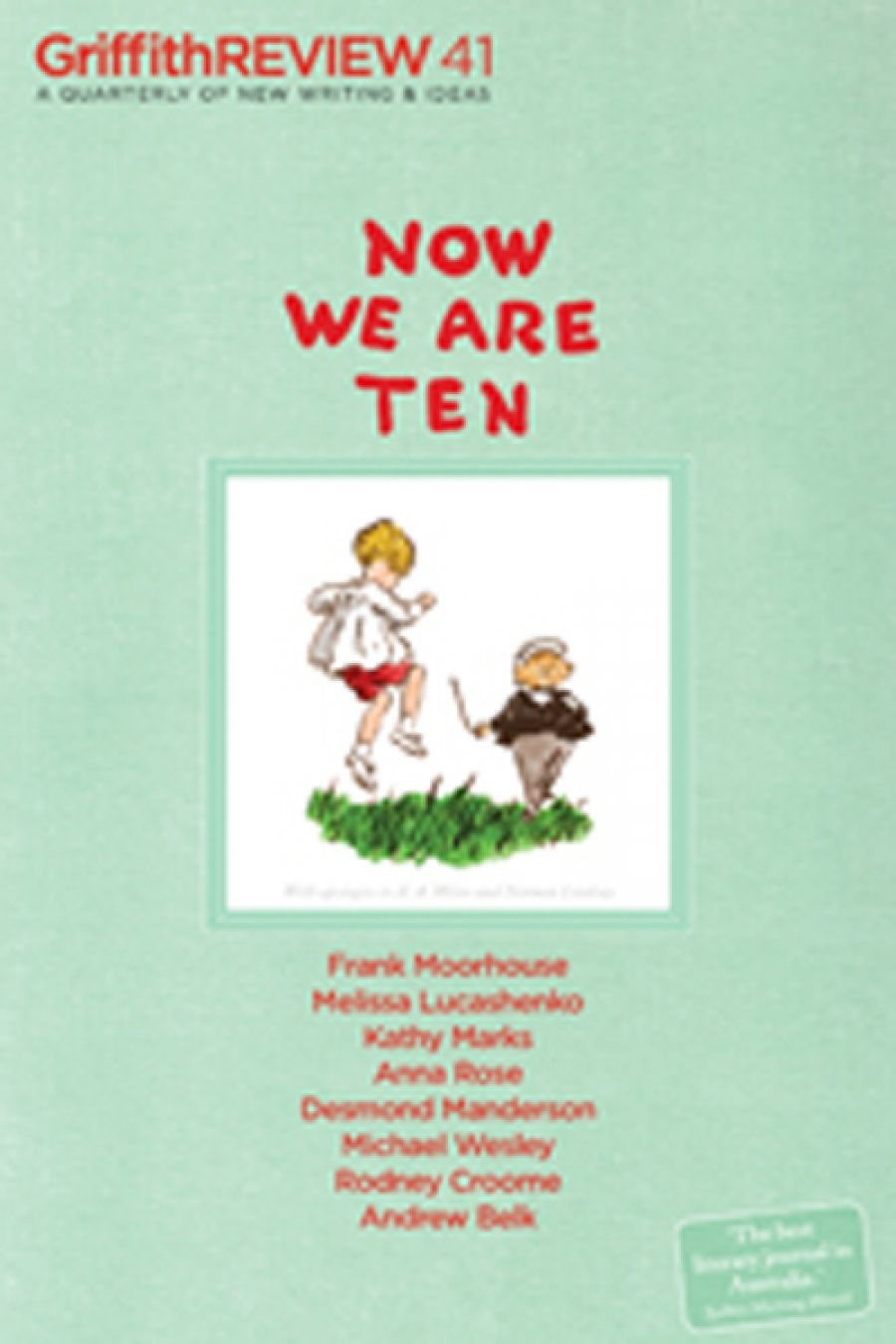
- Free Article: No
- Contents Category: Journals
- Custom Article Title: Andrew Fuhrmann reviews 'Griffith Review 41' edited by Julianne Schultz
- Review Article: Yes
- Article Title: Griffith Review 41
- Online Only: No
- Custom Highlight Text:
And so Griffith Review is ten. It’s a credit to the publishing smarts of founding editor Julianne Schultz that the journal is now a fixture on the cultural landscape, alongside the country’s older literary journals. Griffith is the vantage not of the outraged so much as the frustrated, a reliable forum for passionate criticisms aimed at the inadequacy of political discourse in contemporary Australia. This inadequacy is what Schultz calls the ‘shrill negative timidity and lack of ambition’ in the way political, economic, social, and environmental challenges are framed in public debate. For instance, in one of the liveliest pieces in this issue, Melissa Lucashenko rails against the stereotyping of our urban poor. She writes this as one herself now living in cheap housing in Logan City, Brisbane, one of Australia’s ten poorest urban areas. Quoting Orwell, she finds a kind of relief, being at last genuinely ‘down and out’. It gives her a more nuanced, compassionate perspective – the desideratum of all Griffith contributors – on debates around housing, drugs, and domestic violence.
- Book 1 Title: Griffith Review 41
- Book 1 Biblio: Text Publishing, $27.99 pb, 256 pp, 9781922079985
Orwell is something of a paragon at Griffith. This volume, like many before it, is stacked with firsthand, I-was-there reports, from backwoods anti-homosexual Tasmania to Malakunanja, from Collins Street at three p.m. to the back lots of Wadeye. Notwithstanding the Orwellian mood, one of the oddities of this self-described literary journal is that few of its contributors are what we might call ‘literary’. Many indeed are not writers at all, per se, but rather doctors or school teachers or administrators. This diversity is one of the magazine’s advantages, but it also leads to a kind of sameness in the earnest first-person narrative tone, and the categories of ‘reportage’, ‘memoir’, and ‘essay’ easily blur. But even Orwell wasn’t Orwell until quite late, and Griffith Review promises many more decades of mining passion for inspiration.


Comments powered by CComment